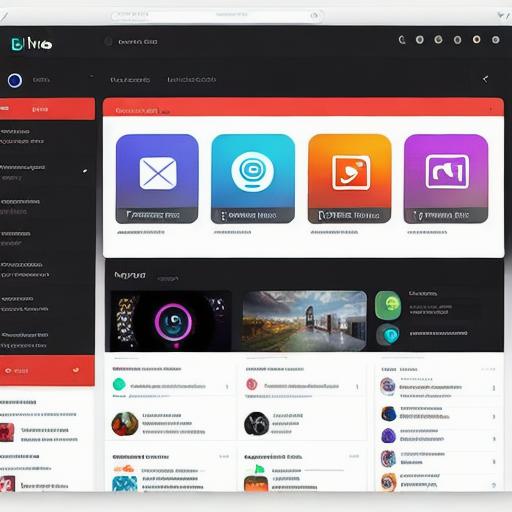Introduction

As the world moves towards a more decentralized and web-based future, it’s important for creators to find new platforms that align with their values and support their work. While YouTube has long been the go-to platform for video content, Web3 enthusiasts have started to explore other options that prioritize user control, privacy, and monetization opportunities. In this guide, we will delve into some of the best alternatives to YouTube for Web3 content creators.
The Rise of Web3 Content Creation

With the advent of blockchain technology and decentralized platforms, Web3 content creation has become increasingly popular. These platforms offer a range of benefits that traditional centralized platforms do not, such as greater control over user data, more transparent monetization opportunities, and a community-driven approach to content creation. However, finding the right platform can be challenging, as many are still in their early stages of development or lack the necessary features to support advanced Web3 applications.
In this guide, we will explore some of the most promising alternatives to YouTube for Web3 content creators. From decentralized video platforms to blockchain-based social media networks, these platforms offer a range of unique benefits that set them apart from their centralized counterparts.
- DTube
DTube is a decentralized video platform that allows users to upload and share videos without relying on a single entity to host and distribute content. Instead, DTube uses IPFS (InterPlanetary File System) to store and share files, ensuring that user data is distributed across a network of nodes for maximum redundancy and privacy.
One of the key benefits of DTube is its support for decentralized monetization options, such as tipping and subscription-based models. Users can also earn DTC (Distributed Tube Coins) by contributing to the platform’s development or participating in governance decisions.
- BitChute
BitChute is another decentralized video platform that aims to provide a more privacy-focused and community-driven approach to content creation. Like DTube, BitChute uses IPFS to store and share files, ensuring that user data is distributed across a network of nodes.
BitChute also offers a range of monetization options, including tipping and subscription-based models. Additionally, the platform supports live streaming and interactive features such as chat rooms and moderation tools.
3. Steemit
Steemit is a blockchain-based social media network that rewards users for creating high-quality content. Users can earn STEEM tokens by publishing articles, participating in discussions, and upvoting content from other users. These tokens can then be used to buy and sell goods and services on the Steem marketplace or exchanged for other cryptocurrencies.
While Steemit has been around since 2016, it has seen a resurgence in popularity thanks to its emphasis on user-generated content and its focus on rewarding creativity and quality.
- OrbisCoin TV
OrbisCoin TV is a decentralized video platform that uses blockchain technology to provide users with greater control over their data and monetization options. The platform allows users to upload and share videos, as well as earn OTV tokens by watching and engaging with content.
OTV tokens can then be used to purchase goods and services on the OrbisCoin marketplace or exchanged for other cryptocurrencies. Additionally, the platform supports live streaming and interactive features such as chat rooms and moderation tools.
FAQs
Q: What is Web3 content creation?
A: Web3 content creation refers to the process of creating and distributing digital content on decentralized platforms that prioritize user control, privacy, and monetization opportunities.
Q: Why are centralized platforms no longer suitable for Web3 content creators?
A: Centralized platforms often lack transparency, security, and community-driven features that are essential for Web3 content creators. Additionally, these platforms may censor or limit user content based on their policies or the interests of their stakeholders.
Q: How do decentralized video platforms work?
A: Decentralized video platforms use distributed file storage systems such as IPFS to store and share videos. This ensures that user data is distributed across a network of nodes for maximum redundancy and privacy.
Q: What are the benefits of blockchain-based social media networks?
A: Blockchain-based social media networks offer greater control over user data, more transparent monetization opportunities, and a community-driven approach to content creation. These platforms also provide users with greater privacy and security, as well as the ability to earn rewards for their creativity and quality content.
Conclusion
In conclusion, Web3 content creators have many options when it comes to finding alternative platforms to YouTube. Whether you are looking for a decentralized video platform or a blockchain-based social media network, there is a range of platforms that offer unique benefits and support for Web3 applications. By exploring these alternatives, you can find the right platform
